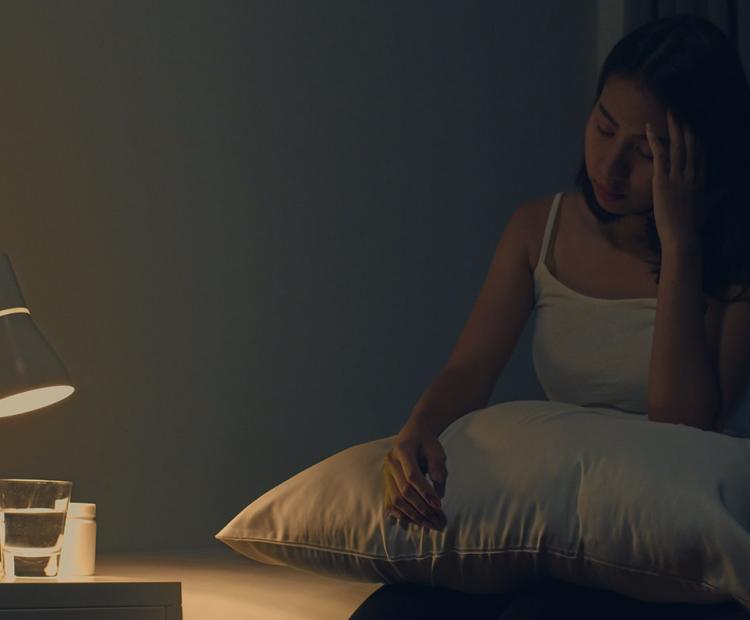Why do you hurt more at night? Unfortunately, there is no single answer.
Chronic pain can be a debilitating condition that can affect a person’s quality of life in many ways. One of the most challenging aspects of chronic pain is its tendency to become more intense and noticeable at night. This can lead to insomnia, sleep disturbances, and overall poor sleep quality, which can further exacerbate the pain. At Advanced Spine and Pain in Phoenix, AZ, we understand the challenges that come with chronic pain, and we want to help you understand why it is more common at night.
There are several reasons why chronic pain tends to be worse at night. Here are some of the most common reasons:
- Reduced activity levels
During the day, most people are engaged in various activities that keep them distracted from their pain. These activities can include work, socializing, exercising, and running errands. However, as the day wears on, most people tend to become more sedentary and spend more time sitting or lying down. This reduction in activity can lead to an increase in pain, as the lack of movement can cause stiffness and muscle tension.
- Changes in posture
Another reason why chronic pain tends to be worse at night is due to changes in posture. During the day, people tend to move around more and change positions frequently, which can help alleviate pain. However, when we lie down to sleep, our posture remains fixed, and this can lead to an increase in pain. Additionally, people tend to sleep in positions that can exacerbate their pain, such as sleeping on their stomach or on their side with their knees together.
- Reduced distraction
At night, there are fewer distractions to keep us from focusing on our pain. During the day, we have many things to occupy our minds, such as work, hobbies, and socializing. However, at night, we are left alone with our thoughts, and this can lead to an increase in pain perception. Additionally, the lack of external stimuli can make pain feel more intense.
- Changes in hormone levels
Hormones play an important role in regulating pain perception, and changes in hormone levels can affect how we perceive pain. For example, cortisol, a hormone that helps regulate stress, is typically lower at night. This can lead to an increase in inflammation, which can worsen pain. Additionally, melatonin, a hormone that regulates sleep, can also affect pain perception. Low levels of melatonin have been associated with an increase in pain sensitivity.
- Sleep disturbances
Chronic pain can cause sleep disturbances, which can, in turn, exacerbate pain. People with chronic pain often have difficulty falling asleep or staying asleep, and this can lead to a cycle of pain and poor sleep quality. Lack of sleep can cause fatigue and muscle tension, which can make pain feel more intense. Additionally, sleep disturbances can affect hormone levels and inflammation, which can further exacerbate pain.
Managing nighttime chronic pain
If you are struggling with chronic pain that is worse at night, there are several strategies that you can try to manage your symptoms. Here are some tips:
- Stay active during the day
One of the best ways to manage nighttime pain is to stay active during the day. Engage in regular exercise, such as walking or swimming, to help keep your body moving and prevent stiffness. Additionally, try to stay engaged in activities that keep your mind occupied and distracted from your pain.
- Practice good sleep hygiene
Establishing good sleep hygiene is essential for managing nighttime pain. Make sure your sleep environment is comfortable, cool, and quiet. Additionally, try to establish a regular sleep routine and avoid activities that can interfere with sleep, such as consuming caffeine or using electronic devices before bed.
- Use heat or cold therapy
Heat or cold therapy can be helpful in managing nighttime pain. Try using a heating pad or taking warm baths to relax your muscles and reduce stiffness. Alternatively, you can use cold therapy, such as ice packs or cold compresses, to reduce inflammation and numb the affected area.
- Practice relaxation techniques
Relaxation techniques, such as deep breathing, meditation, or yoga, can help reduce stress and anxiety, which can exacerbate pain. These techniques can also help promote relaxation and improve sleep quality, which can further reduce pain.
- Consider pain management treatments
If your chronic pain is severe and affecting your quality of life, consider seeking medical treatment from a pain management specialist. They can provide a variety of treatments, such as medications, injections, physical therapy, or surgery, to help manage your symptoms and improve your quality of life.
In conclusion, chronic pain is more common at night due to several factors, such as reduced activity levels, changes in posture, reduced distraction, changes in hormone levels, and sleep disturbances. Managing nighttime chronic pain can be challenging, but there are several strategies that you can try, such as staying active during the day, practicing good sleep hygiene, using heat or cold therapy, practicing relaxation techniques, and seeking medical treatment. At Advanced Spine and Pain, we specialize in the diagnosis and treatment of chronic pain, and we are dedicated to helping our patients improve their quality of life. Contact us today to schedule an appointment and learn more about our services.

